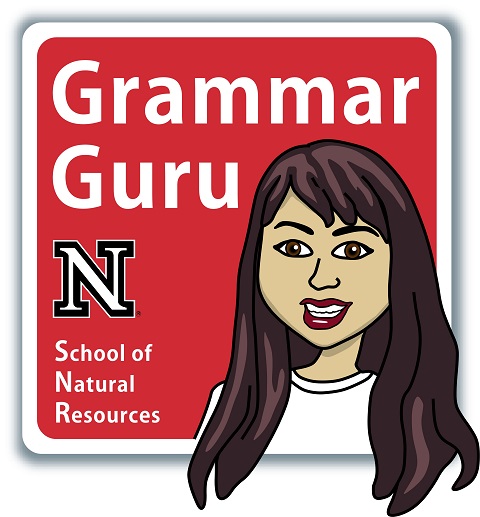
Mekita Rivas, SNR communications associate, publishes a biweekly feature called "Grammar Guru."
Every other week, the Grammar Guru will share writing tips to help make your work as polished as possible. Some of these tips may address common spelling errors, while others will examine the many nuances of the English language.
Grammar Guru Tip #17
Knowing when to use me, myself or I is a source of confusion for native and non-native English speakers alike. To avoid such confusion, remember the following:
• "Me" always functions as the object; "I" is always the subject.
• You can only use "myself" when you've referred to yourself earlier in the sentence. It's called a reflexive pronoun — it corresponds to a pronoun previously in the sentence.
Example:
NOT: My friend and myself made lunch.
BUT: I made lunch for my friend and myself.
Pro tip: To decide which word to use in "someone else and me/I" situations, take the other person out of the sentence. "My friend and I went to the store." Is "I went to the store" correct? You're good then.
Need some grammar guidance? The UNL Style Guide (http://unlcms.unl.edu/ucomm/styleguide/) is a great resource for all university employees. If you have writing questions that the style guide doesn't answer, feel free to email the Grammar Guru at mrivas@unl.edu.